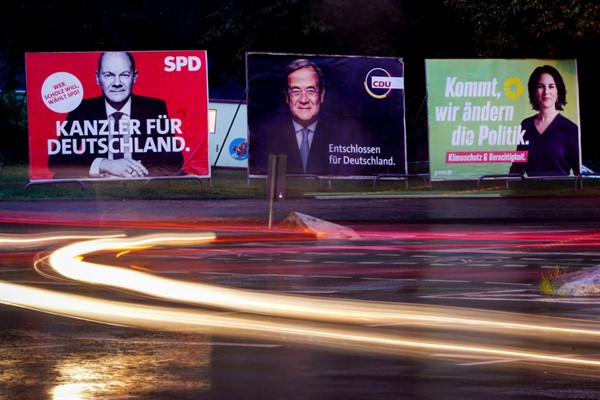Editor’s Note: This is the web version of our subscriber-only weekly newsletter, Europe Decoder, which includes a look at the week’s top stories and best reads from and about Europe. Subscribe to receive it by email every Thursday. If you’re already a subscriber, adjust your newsletter settings to receive it directly to your email inbox.
According to the latest opinion surveys ahead of a general election in Germany scheduled for Sept. 26, Chancellor Angela Merkel’s center-right Christian Democratic Union, or CDU, is on course for its worst performance in the party’s history. Together with its Bavarian sister party, the Christian Social Union, or CSU, it has the support of around 21 percent of German voters—down eight points from two months ago—according to a polling average compiled by Europe Elects. The center-left Social Democratic Party, or SPD, has seen an incredible surge over the past two months, now polling at 26 percent, compared to 16 percent two months ago.
The SPD’s candidate for chancellor, Olaf Scholz, is already looking beyond the elections and talking up the prospect of forming a coalition government with the Greens, who are currently polling at 16 percent. But they would need a third partner to have a majority in parliament, with either the far-left Die Linke or the pro-business Free Democratic Party—polling at 6.4 percent and 11.8 percent, respectively—looking like the most plausible options. Indeed, at the moment, the most likely post-election scenario is one where Scholz will become chancellor of a coalition with the Greens and Die Linke or Greens and FDP.

